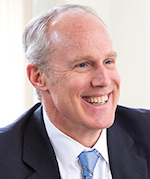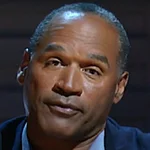 |
| Bill Haynes |
As the world begins to emerge from the disruptions caused by COVID, as economies start to heat up again and as companies become more comfortable making plans and investing for future growth, an increasing number of companies are embarking on a quest to identify a PR firm to help them achieve their business objectives.
Some of the largest companies are issuing comprehensive, multi-step RFPs to dozens of agencies, while others are identifying candidate agencies through Google and directory searches and by tapping into their network for referrals. Some searchers are PR veterans who know what questions to ask and can effectively ascertain which agencies have the right factors that are most likely to lead to a long-term, successful relationship. Others are new to working with agencies and may be new to their company.
With lessons learned from taking part in hundreds of new business searches, here’s a list of 10 important themes for companies to explore to find the best agency for them:
Focus. Does the agency focus on your field? You don’t want a generalist. Knowledge of PR and marketing is important, but it’s only half of what your agency needs to succeed. The other half—knowledge of the industry—is equally important in order to understand as fully as possible your company and where it fits in your business ecosystem, to offer strategic advice based on that knowledge and to be able to convey your unique value proposition to your target audiences.
| This article is featured in O'Dwyer's May '21 PR Firm Rankings Magazine (view PDF version) |
Relationships. Does the agency have strong relationships with your target audience? You need an agency that knows not just the names of target publications, but that also speaks regularly with reporters there and knows what interests them. The same is true with industry influencers, data providers, consultants and conference and awards organizers. Having existing relationships—not just a database or list—saves time and boosts efficacy for agency and company alike.
Size. Is the agency the right size for you? Do you need to have an agency with hundreds or even thousands of employees? At the other end of the spectrum, will a freelancer have the time and strategic perspective to help you long-term? Finding an agency where you’re big enough to command the agency’s best strategists—but not so big that you overwhelm the firm’s capacity to deliver a sustained and effective program—is critical.
Team. What’s the makeup of the team that will work on your account? Finding an agency that will field a team of professionals at different levels and responsibilities and truly work as one team is important. Make sure you have a good understanding of who will comprise that team and their backgrounds and responsibilities. It may not be the ones who are pitching you. Be certain you have access to senior-level agency executives who are involved in your account and can provide ongoing strategic advice.
Integrated services. Does the agency have an integrated approach to help you develop your brand and build your business? These days, traditional media relations, or “earned media,” isn’t enough. Earned media can be leveraged through multiple channels such as social media, website and newsletters (it would be a mistake to rely solely on publications’ subscribers to see your news). Likewise, content development, or “owned media,” is an important offering from agencies. This can include blogs, articles, white papers, studies, videos, podcasts and other means to capture the perspectives of your executives and share it with your audiences. Of course, all content developers aren’t alike. Make sure the agency has former journalists in house who are involved with your account and who can conduct the research and interviews and write compelling, non-salesy articles your audience will want to read.
Strategic approach. Does the agency pride itself on developing and executing 12-month proactive plans, or are they waiting for you to call them and tell them what to do? Too often we hear from prospective clients that they have just fired their PR firm because they were waiting around for company news or direction. They were not taking the initiative to understand the client and its business objectives and offer strategic initiatives on a sustained basis to help the client accomplish its goals.
Client and staff turnover. What is the length of an average client relationship? You may be signing a one-year contract, but how often do clients renew those contracts year after year? Make sure your agency can keep the PR program fresh and adjust their tactics to meet your evolving goals. Also ask about the average tenure of employees. A growing agency can provide growth opportunities. If employee turnover is low, the agency must be providing the positive work environment that leads to engaged and happy employees who are more likely to be vested in their team, their company and your success.
Budget. It’s important for a company to establish an adequate budget for an agency to provide the necessary service for your account. Ask peers what their programs and budgets are before launching an agency search and share the budget range and strategic priorities with agencies as part of your search process. That way neither party wastes time if an agency feels it’s not feasible to achieve your objectives with your budget. Agencies can then respond to your search with a plan they believe offers the best ROI. This may include a core program with optional additional tactics with a la carte pricing.
References. What do references say about the agencies? Are they just checking the boxes in their response to your queries or are they passionate advocates for the agency, its individuals and services based on the success and relationships they have built together? Hiring an agency is like hiring employees. If references don’t proactively vouch for their exceptional abilities and say, “You have to hire them,” then don’t.
Chemistry. At the end of the day, are you confident that the agency can help you achieve your objectives? Are they passionate about partnering and succeeding together with you? And do you want to work with them? Make sure you can have candid conversations with one another and that you’re inclined to trust them. This is the foundation upon which long-term relationships are built. Along with celebrating successes together, there will always be things that you wished had gone better. Find an agency with which you feel comfortable debriefing and adjusting the plan and process and you’re likely to enjoy a successful long-term relationship.
***
Bill Haynes is Founder and CEO of BackBay Communications.


 The techniques deployed by OJ Simpson's defense team in the "trial of the century" served as a harbinger for those used by Donald Trump... People worry about the politicization of medical science just as much as they fret about another pandemic, according to Edelman Trust Barometer... Book bans aren't restricted to red states as deep blue Illinois, Connecticut and Maryland challenged at least 100 titles in 2023.
The techniques deployed by OJ Simpson's defense team in the "trial of the century" served as a harbinger for those used by Donald Trump... People worry about the politicization of medical science just as much as they fret about another pandemic, according to Edelman Trust Barometer... Book bans aren't restricted to red states as deep blue Illinois, Connecticut and Maryland challenged at least 100 titles in 2023. The NBA, which promotes legalized gambling 24/7, seems more than hypocritical for banning player for placing bets... Diocese of Brooklyn promises to issue press release the next time one of its priests is charged with sexual abuse... Truth Social aspires to be one of Donald Trump's iconic American brands, just like Trump University or Trump Steaks or Trump Ice Cubes.
The NBA, which promotes legalized gambling 24/7, seems more than hypocritical for banning player for placing bets... Diocese of Brooklyn promises to issue press release the next time one of its priests is charged with sexual abuse... Truth Social aspires to be one of Donald Trump's iconic American brands, just like Trump University or Trump Steaks or Trump Ice Cubes. Publicis Groupe CEO Arthur Sadoun puts competition on notice... Macy's throws in the towel as it appoints two directors nominated by its unwanted suitor... The Profile in Wimpery Award goes to the Ford Presidential Foundation for stiffing American hero and former Wyoming Congresswoman Liz Cheney.
Publicis Groupe CEO Arthur Sadoun puts competition on notice... Macy's throws in the towel as it appoints two directors nominated by its unwanted suitor... The Profile in Wimpery Award goes to the Ford Presidential Foundation for stiffing American hero and former Wyoming Congresswoman Liz Cheney. JPMorgan Chase chief Jamie Dimon's "letter to shareholders" is a must-read for PR people and others interested in fixing America and living up to its potential... Get ready for the PPE shortage when the next pandemic hits... Nixing Netanyahu. Gaza carnage turns US opinion against Israel's prime minister.
JPMorgan Chase chief Jamie Dimon's "letter to shareholders" is a must-read for PR people and others interested in fixing America and living up to its potential... Get ready for the PPE shortage when the next pandemic hits... Nixing Netanyahu. Gaza carnage turns US opinion against Israel's prime minister. Trump Media & Technology Group sees Elon Musk's X as an option for those who want the free expression promised by Truth Social but without Donald Trump, owner of 57.3 percent of TMTG... Chalk one up for "anti-woke warrior" governor Greg Abbott as University of Texas lays off 60 DEI-related staffers... Five percent of Americans see the US as its own worst enemy, according to Gallup.
Trump Media & Technology Group sees Elon Musk's X as an option for those who want the free expression promised by Truth Social but without Donald Trump, owner of 57.3 percent of TMTG... Chalk one up for "anti-woke warrior" governor Greg Abbott as University of Texas lays off 60 DEI-related staffers... Five percent of Americans see the US as its own worst enemy, according to Gallup.


 Have a comment? Send it to
Have a comment? Send it to 
No comments have been submitted for this story yet.